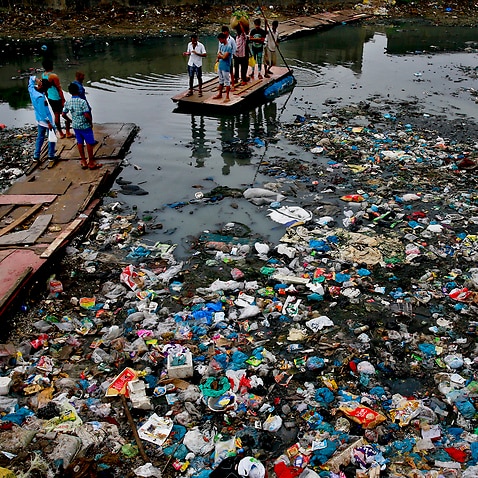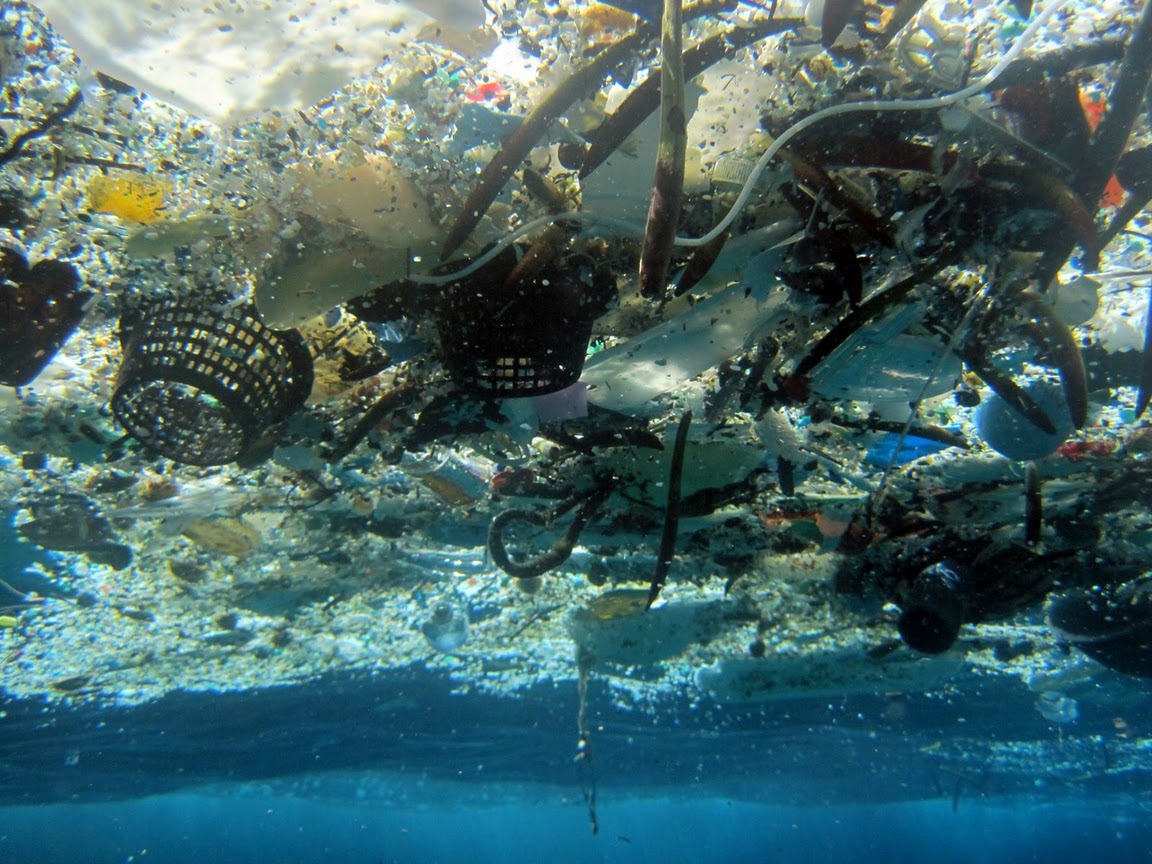Humans are consuming at least 74,000 microplastic particles every year, according to a new study.
The study published on Wednesday looked at the intake of microplastics, or tiny pieces of plastic, via what we eat, drink and the air we breathe.
Focusing on American case studies, researchers found microplastic consumption ranged from 74,000 to 121,000 particles per year, depending on age and sex.
READ MORE

And people who only use bottled water may drink an additional 90,000 microplastics annually compared with those who drink only tap water.
"Given methodological and data limitations, these values are likely underestimates," the study, published in the Environmental Science & Technology journal, said. Plastic pollution is a global problem.
Plastic pollution is a global problem.

AAP
Researchers analysed the amount of microparticles in fish, shellfish, added sugars, salts, alcohol, tap or bottled water and air.
Microplastics are extremely small pieces of plastic debris that come from multiple sources, such as the breakdown of larger plastic products or via food and water containers during packaging.
"Microplastics are ubiquitous across ecosystems, yet the exposure risk to humans is unresolved," the study said.
'A wake-up call'
In a statement, chemistry expert at RMIT Professor Oliver Jones stressed that "no harm has yet been demonstrated to humans from microplastics". A bulldozer seen working to move piles of waste at a garbage dumps in Lhokseumawe, Aceh province, Indonesia.
A bulldozer seen working to move piles of waste at a garbage dumps in Lhokseumawe, Aceh province, Indonesia.

SIPA USA
"[But] that said, the data are certainly a wake-up call to the potential scale of the problem," Professor Jones said.
"Microplastics are an area where more science is welcome as we simply don't yet know enough about the issue to make robust conclusions about the possible risk."
While in a statement, Dr Thavamani Palanisami of the Global Centre for Environmental Remediation at the University of Newcastle said the report "provides an alarming indication of the wider impacts of plastic pollution".
"It’s a crisis that is not only blighting our landscapes and oceans but affecting the food we eat and the water we drink."
Share
